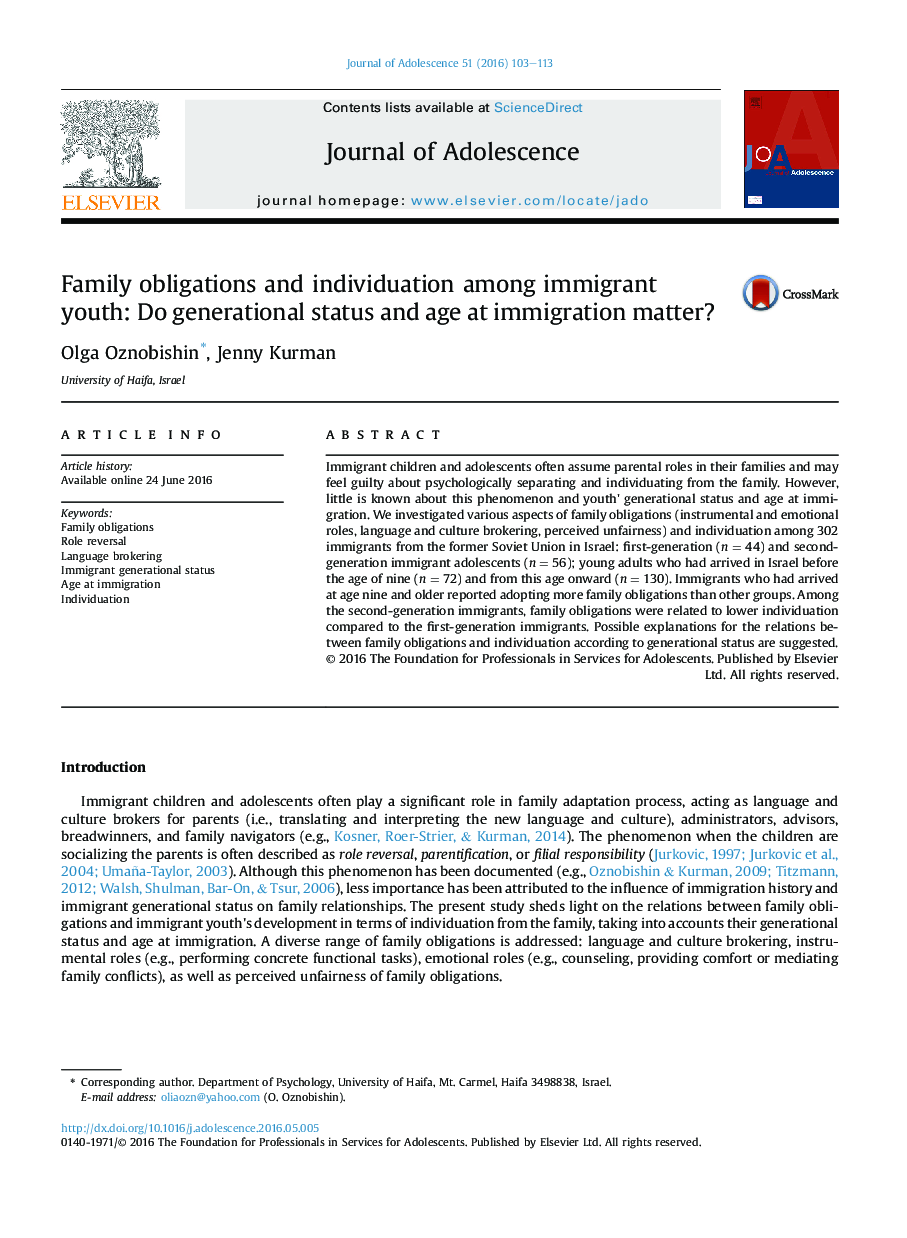| Article ID | Journal | Published Year | Pages | File Type |
|---|---|---|---|---|
| 880555 | Journal of Adolescence | 2016 | 11 Pages |
Immigrant children and adolescents often assume parental roles in their families and may feel guilty about psychologically separating and individuating from the family. However, little is known about this phenomenon and youth' generational status and age at immigration. We investigated various aspects of family obligations (instrumental and emotional roles, language and culture brokering, perceived unfairness) and individuation among 302 immigrants from the former Soviet Union in Israel: first-generation (n = 44) and second-generation immigrant adolescents (n = 56); young adults who had arrived in Israel before the age of nine (n = 72) and from this age onward (n = 130). Immigrants who had arrived at age nine and older reported adopting more family obligations than other groups. Among the second-generation immigrants, family obligations were related to lower individuation compared to the first-generation immigrants. Possible explanations for the relations between family obligations and individuation according to generational status are suggested.
